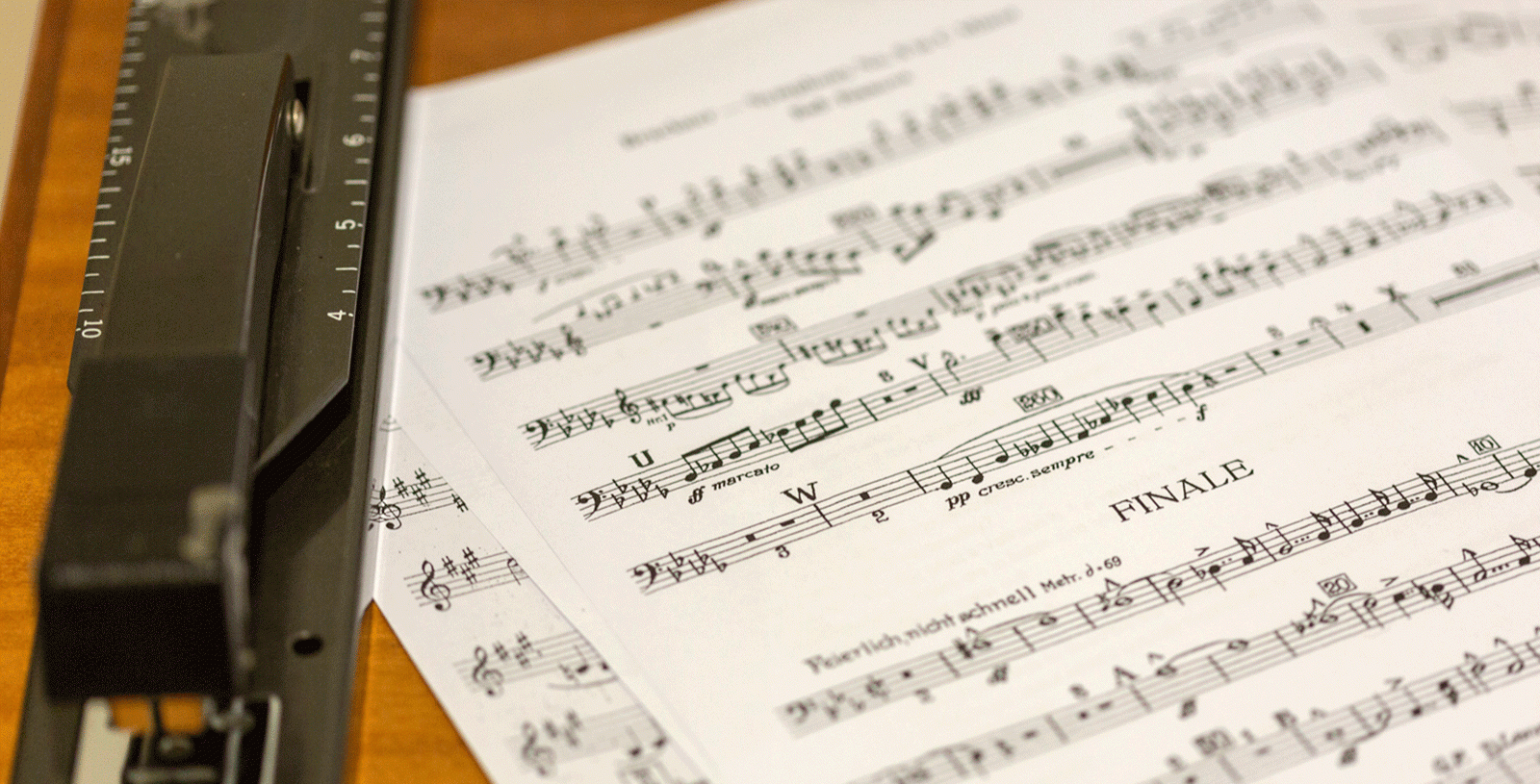Words by
Phil Lambert
ANAM Music Librarian
Back in my student days, which are now further back than I like to admit, one of our professors made the admission that he had only recently heard, for the very first time, The Silver Swan by Orlando Gibbons. This surprised us all as this particular gentleman, whom we all liked, appeared from our less worldly perspective to be the apogee of musical wisdom and omniscience and The Silver Swan is, as even we wet-behind-the-ears students knew, one of the most sublime of all Elizabethan madrigals. “But”, he added, “it really is lovely to discover some of the great works late in life.”

It’s a remark which has always stayed with me. I liked him for admitting that he didn’t know everything, and for opening up the possibility that there would always be something great to discover, no matter how much one had learned, studied and listened. I think I even wondered what my ‘late discoveries’ might be.
Now that the dreaded C-word virus has forced many of us into a slower pace, I’ve had time to make one of those discoveries. It happened one night after a stressful week at ANAM during which the State and Federal governments, and our own administration, had played an exhausting game of move-the-goalposts, all in response to the infectious, invisible monster which was now dominating the world stage. Having gathered some essential belongings and left our beautiful building for the last time in who knows how long, I got home and realised I needed to hear some sanity. Haven’t you noticed how the C-word is dominating every news bulletin, every talk-back show? I needed to hear something untouched by the chaos going on around me. The answer, I suddenly realised, was in a CD that had been sitting on my sideboard for months just waiting for me to play it, and the music contained therein was the Goldberg Variations by JS Bach.
Now, I am not a young person anymore. I am, as the French politely say, un homme d’un certain âge, and have been listening to classical music since I was an embryo, my mother being quite a good pianist. But I had never, repeat never, listened to the Goldberg Variations. Who can say why? I was familiar with all of Bach’s other keyboard works, plus all the great choral works, had journeyed through all the cantatas, and built a strong, loving relationship with the solo violin and cello works. But the Goldbergs I had always avoided. Perhaps I was unconsciously saving them for that rainy day.
Wow. It was worth the wait. For the last week I have been going through them every day, usually under the guidance of either Murray Perahia or Glenn Gould, both of whom are marvellous advocates. For those of you who are unfamiliar with this work, it begins with a gentle ‘aria’ in G major, followed by thirty variations, all in the same key except for three in G minor. Bach brings in the dance rhythms loved by him and most baroque composers, including the sarabande and the gigue, and dazzles with some toccatas and a regal French overture. Every variation follows the harmonic progression laid out in the opening aria, a procedure which in lesser hands might lead to monotony but in Bach’s masterful treatment keeps building a suspenseful state of “What next?”. Like all great music, it follows its own inexorable logic but keeps throwing up surprises, which is probably why I’m still not tired of it after a week of dedicated listening.

But here’s an interesting fact. The Goldberg Variations were published in 1741, which makes them one of the very few of Bach’s works to be published in his lifetime. Imagine. Only a handful of works by the greatest composer of all time were available in print for his contemporaries to study and learn from. Of all the choral works and cantatas only one, the very early cantata God is My King (Gott ist mein König) made it into print, and only in a limited edition sponsored by the Mühlhausen city council which had commissioned it. This meant that Bach’s reputation was surely built more on word-of-mouth and written description rather than the dissemination and perusal of actual scores. There was not much point strolling down to your local music shop and asking for the latest score by Herr Bach of Leipzig because, frankly, there weren’t many to be had. But the Goldbergs were published as the fourth volume of Bach’s ‘Keyboard Exercises’ or Clavier-Übung. His title for the set was Aria with diverse variations, but it acquired the nickname ‘Goldberg’ Variations because of an anecdote published after Bach’s death. The story goes that Bach wrote the variations for Herr Goldberg, a young harpsichordist whose job was to ease his employer, the Russian ambassador, into the arms of Morpheus each night with soothing music. To think of the Goldbergs as a cure for insomnia is a bit much and the story is probably baloney, but it has a certain charm and the nickname has stuck. Even Glenn Gould used it.
Anyway, back to the Goldbergs. An aria and thirty variations. And here’s the kicker. Every third variation is a canon, starting with a canon on the unison and going right through to a canon on the ninth. But that’s Bach for you. He sets himself a gigantic project and then wonders how he can make it even bigger. And after this titanic display of virtuosity, how does Bach wind it all up? With a joke! Yes, the 30th variation is a Quodlibet, or a ‘What you will’, combining his aria with some none-too-respectable pop songs, songs you might belt out at a boozy Oktoberfest. It’s as if Bach is saying, “Yes, music is a learned and noble pursuit, but it’s also fun, dammit!” And then, after his big joke comes the masterstroke: he takes us right back to the original aria, heard exactly as at the beginning. “See?” says Bach. “That great oak grew out of this tiny acorn.”
Now that I am familiar with the pianistic interpretations of Perahia and Gould, I should probably take the next step and listen to the Goldbergs on a double manual harpsichord, which is the instrument Bach actually wrote them for. The harpsichord has never been a favourite instrument of mine, but it was a favourite of Bach’s, so I should probably trust him and give in to it. And who knows? A love for the double manual harpsichord might just be my next better-late-than-never discovery.
– Article orignally published in ANAM's Music Makers vol 35